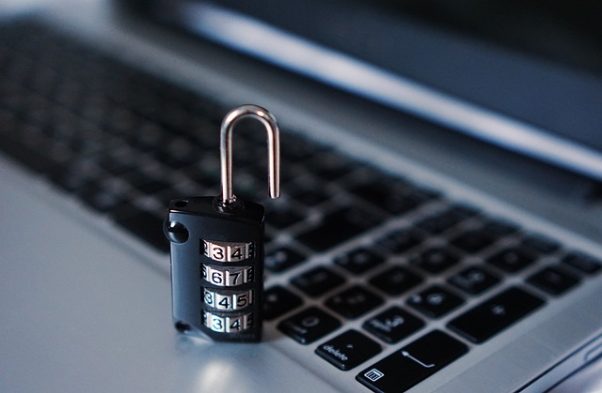If you enable your customers to pay for your goods or services online, you should guarantee the maximum safety of their financial transactions. In this article, you’ll find smart tips on how to do it.
Safety, high speed, and convenience of payments are vital prerequisites for your business’ success. From this article, you’ll get to know how to guarantee the maximum security of online payments. This should enable you to expand your client base, boost your sales, and increase your income. And of course, your brand’s reputation will remain impeccable.
The Most Secure Online Methods
The following four online payment methods are considered the most secure.
- Credit cards. The use of credit and debit cards is regulated by payment compliance standards. When a customer makes a purchase, the system won’t immediately draw the funds from their bank account. The vendor will receive the money not from the customer’s pocket but the credit card company.
- Debit cards. If a customer tries to pay with a debit card from an unfamiliar IP address, it might trigger identity verification measures. Neither MasterCard nor Visa debit and credit cards hold customers accountable for unauthorized payments.
- Wire transfers. Established banks have powerful security systems that efficiently prevent fraud, data breaches, and other emergencies.
- Mobile wallets. This payment method is steadily gaining popularity. When your clients carry out payments, they don’t need to manually type the numbers of their bank cards, their CVVs, and the names of cardholders. To verify purchases, customers introduce PIN codes or use their fingerprints. For business owners, mobile wallets eliminate the chance that they accept fake credit cards — the thing is that mobile wallets can’t function without being linked to a real debit account.
However, it’s not enough just to use a robust online payment system. Every business should also stick to multiple security measures — the most popular ones are described below.
Use Two-Factor Authentication
This measure is especially important for those sites that allow their users to log in with their social media accounts. If someone gets access to your customer’s account, they might be able to carry out payments on their behalf. Two-factor authentication will secure every login your clients make. It will notify them whether someone is trying to access their account from an unfamiliar device.
Use a Personal Verification System
Not all businesses need it. But if this measure is relevant for your industry, you shouldn’t neglect it. You might ask your customers to verify their identities with passports or driving licenses. For this, an ideal technique is to use the know your customer or kyc verification process. It will aid in establishing customer identity and ensure ongoing monitoring.
Make Sure Your Hosting Provider Has Safeguards in Place
This piece of advice includes three recommendations.
- When choosing a web hosting provider, pay primary attention to its safeguards.
- Check whether your site has Secure Socket Layer protection. It should encrypt any data that gets inputted to your site.
- To protect your business from DDOS attacks, get a service like Cloudflare.
Too many owners of small companies believe that they can do without Secure Socket Layer certificates. They think that hackers would hardly attack them because they don’t work with large budgets. But hackers understand this logic very well — and exactly for this reason, small businesses often become their primary targets. To prevent credit card breaches and leaks of your customers’ valuable information, you should get an SSL certificate and update it at least every two years.
Ensure PCI Compliance
Your compliance with Payment Card Industry Data Security Standards (PCI DSS) will add an extra layer of security to your business and strengthen your customer’s trust in you. Entrepreneurs often ask whether the fact of having an SSL certificate makes them PCI-compliant. The answer is no. If you fail to properly set up your webserver to use SSL certificates, you won’t meet the PCI standards. But the notion of PCI standards isn’t limited only to the SSL.
Pick a Reliable E-Commerce Platform
The more established platform you rely on, the lower your risks. You won’t be the only person responsible for detecting threats. Top platforms spend a lot of money on providing security and they regularly integrate the most advanced tools in their workflow.
Never Store Your Customer Payment Data
As soon as a client completes their transaction, you should get rid of their payment data. Think twice: do you seriously need this information? If you store your customers’ credit card numbers, that would create excessive risks for your company. What if someone gets hold of that valuable database? It might ruin your business because you might never be able to restore your reputation. The smartest way out is to use third parties for storing sensitive information. Confidential data should be protected by a private network.
Invest in Cyber Liability Insurance
Imagine that in the worst scenario, you store your clients’ private data and it leaks. If you have insurance, it should help you to offset the financial impact of a data breach and the legal costs that arise from it.
Educate Your Clients about the Importance of VPNs and Other Security Measures
Your site might feature excellent security tools — but if your customers neglect the basic rules of conducting financial transactions, they still might fall easy prey to hackers. This might happen, for instance, if they connect to a public Wi-Fi without a VPN and transfer funds to you. You should remind them that they should use security software and update their browsers. You can post this information on your site and/or mention it in a monthly newsletter.
Watch for Patterns
This is the easiest and the most efficient method of identifying fraud. Most payment processors employ it, so you don’t absolutely need to do the same. Yet if you do, it might enhance your security even further. Once you recognize a fraud pattern, you should put it down and inform your staff members about it. As soon as they come across this pattern, they should become doubly watchful.
Conclusion
Hopefully, this article came in handy for all business owners who are interested in accepting payments online, regardless of their companies’ sizes and industries. To follow the recommendations from this text, you don’t need to have profound technical knowledge — it should be enough to just consult your IT specialists from time to time.
















